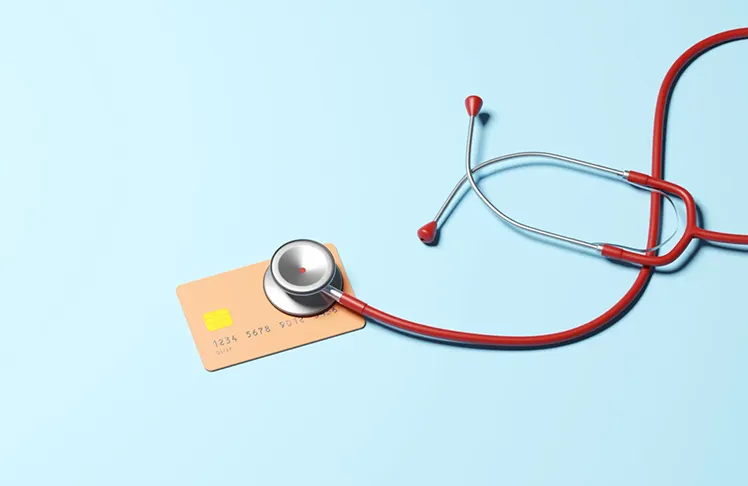
by Jennifer Porter Gore
In a move that could lift the finances of millions, on Tuesday the federal Consumer Financial Protection Bureau issued new regulations that prevent unpaid medical debts from showing up on Americans’ credit reports.
Besides wiping away $49 billion in medical bills from the credit reports of an estimated 15% of all U.S. households, the new CFPB rule also means that banks and lenders cannot use information about unpaid hospital or medical bills when reviewing a credit or loan application.
Statistically, the ruling is a big win for the Black community, particularly for folks who either have or will apply for a credit card, auto loan, or mortgage this year.
“People who get sick shouldn’t have their financial future upended,” CFPB Director Rohit Chopra said in a statement. “The CFPB’s final rule will close a special carveout that has allowed debt collectors to abuse the credit reporting system to coerce people into paying medical bills they may not even owe.”
Allison Sesso, CEO and president of Undue Medical Debt, a nonprofit advocacy group, called the move a “huge step in the right direction.”
“We know that many providers like hospitals have already stopped reporting medical debts to credit bureaus,” Sesso said. “Nonetheless, this is a huge achievement to make substantive change in patients’ lives and further elevate the issue of medical debt on the national stage.”
But debt collection industry groups like the Association of Credit and Collection Professionals warned that the change would give some patients a free pass. The association said the rule would result in “reduced consequences for not paying your bills, which in turn will reduce access to credit and health care for those that need it most.”
People who get sick shouldn’t have their financial future upended. – Rohit Chopra, Consumer Financial protection Bureau
Although the vast majority of Americans have either private or publicly funded health insurance, medical debt — accumulated through circumstances like an unforeseen medical emergency, out-of-network fees or expensive diagnostic tests that aren’t covered — plagues millions of people.
According to the American Bankruptcy Institute, medical bills are the number-one reason people file for bankruptcy each year. An analysis of Census Bureau data found 15% of U.S. households owed medical debt in 2021, but a CFPB study published in 2014 found that consumers may be overly penalized on credit reports for medical debt that goes into collections.
The study also found that the scoring models used by the credit reporting agencies, or credit bureaus, may not be crediting consumers who repay the medical debt that has gone into collections. And in March 2022, the CFPB released a report estimating that medical bills made up $88 billion of reported debts on credit reports.
Studies show Black households were more likely than than other demographic groups to report having medical debt. Thirteen percent of Black people reported owing medical debt, compared to 8% of whites and 3% of Asian Americans.
The new CFPB rule also closes a loophole that had allowed debt collectors to threaten to report consumers who disputed inaccurate or erroneous medical bills.
The CFPB’s action builds on changes made in 2022 by the three major nationwide credit reporting bureaus: Equifax, Experian, and TransUnion. When the CFPB raised concerns about medical debt credit reporting in early 2022, the credit bureaus announced they would remove of certain types of medical debt from credit reports, including collections under $500.
Sesso, the Undue Medical Debt executive, said much more work remains to address what she said is an estimated $220 billion of medical debt weighing down families.
The debt collection industry strongly opposes the new rules and it is expected they will contest the rule in court.
She pointed out that nearly half of people surveyed said they or a family member skipped necessary care because they feared it was too expensive.
The CFPB has estimated that the new credit reporting rule will raise the credit scores of people with medical debt on their credit reports by 20 points on average.
However, the debt collection industry strongly opposes the new rules and it is expected they will contest the rule in court. President-elect Donald Trump may also try to undo the rule after he takes office on Jan. 20. Patient and consumer advocates have been preparing to work with state-level legislators to expand consumers’ access to relief from medical debt.
“The election simply shifts our focus,” Eva Stahl, who oversees public policy at Undue Medical Debt, said in an interview with The Minnesota Spokesman-Recorder. “States are going to be the epicenter of policy change to mitigate the harms of medical debt.”















